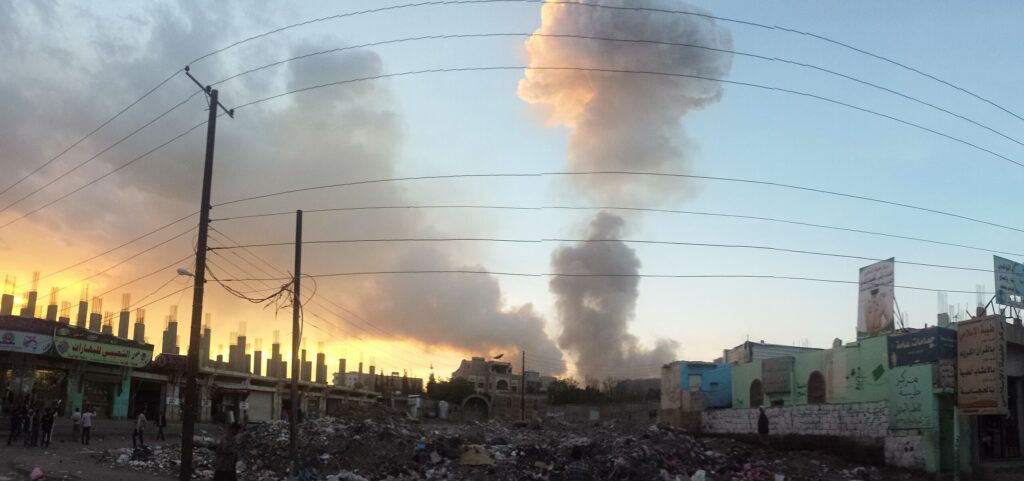
(Rightallegiance.com) – The United States has intensified its military operations against Yemen’s Houthi rebels, launching a series of airstrikes targeting key positions in an effort to curb attacks on Red Sea shipping lanes and deter threats against allied nations.
The Houthi rebels, officially known as Ansar Allah, have been a dominant force in Yemen’s civil war since 2014, seizing control of the capital, Sanaa, and other significant territories. Backed by Iran, the Houthis have engaged in numerous attacks against military and commercial vessels in the Red Sea, a critical maritime route for global trade. Since November 2023, they have been responsible for over 130 such assaults, causing substantial disruptions to international shipping and prompting global economic concerns.
Beginning on March 15, 2025, the U.S. initiated a robust airstrike campaign targeting Houthi-controlled sites across Yemen. The operations have been extensive, with reports indicating that more than 40 locations, including strategic military installations in Sanaa, al-Jawf, and Saada, have been hit. These strikes have resulted in casualties, with at least one person confirmed dead and several others injured. The U.S. military has acknowledged targeting significant military sites, aiming to dismantle the Houthis’ operational capabilities.
The escalation has elicited varied responses from the international community. Iran, the primary supporter of the Houthis, has condemned the U.S. actions, warning of potential repercussions in the region. International bodies, including the United Nations, have expressed concern over the heightened conflict and its humanitarian implications. The Red Sea’s security remains a focal point, given its significance to global trade. The recent attacks have led to increased shipping insurance premiums and rerouted maritime traffic, further straining global supply chains.
Domestically, the intensified military actions have sparked debate. Bipartisan reactions from Congress range from support for counterterrorism efforts to concerns about prolonged military involvement without explicit authorization. Public opinion is divided, with discussions focusing on the balance between national security interests and the potential for entanglement in another protracted Middle Eastern conflict. Media coverage has been extensive, highlighting both the strategic objectives and the unintended consequences of the operations.
The trajectory of the conflict remains uncertain. While the U.S. aims to deter Houthi aggression and secure maritime routes, the resilience of the rebels suggests that airstrikes alone may not suffice. Diplomatic efforts could become pivotal in de-escalating tensions and achieving a sustainable resolution. Regional security concerns persist, with neighboring countries bolstering defenses amid fears of spillover violence. The long-term impact on U.S.-Middle East relations will hinge on the conflict’s outcome and the broader geopolitical dynamics at play.
The U.S.’s escalated military campaign against Yemen’s Houthi rebels underscores the complexities of Middle Eastern geopolitics and the challenges of safeguarding global trade routes. As the situation unfolds, the international community watches closely, weighing the prospects for peace against the backdrop of enduring conflict.